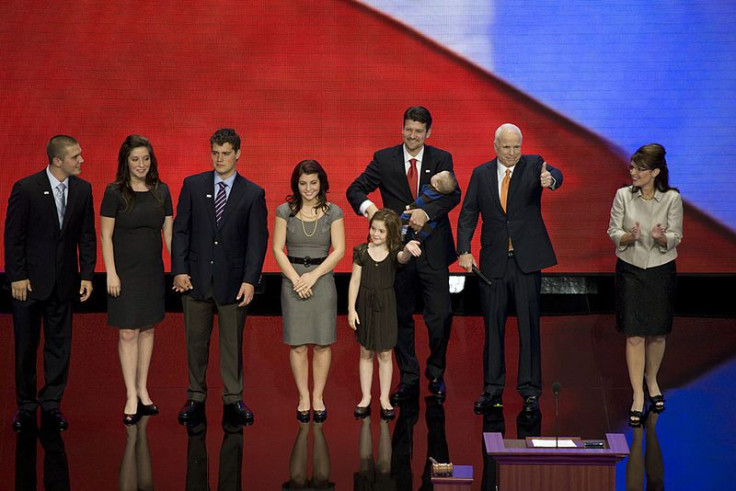Boys Raised With Sisters More Likely To Vote Republican

Behind every "good" man is a woman — and sometimes another, and another.
Men who were raised with female siblings are more likely to hold conservative views on gender throughout life, and tend to vote republican at higher rates than other men, a new study shows.
In analyzing data from two previous studies, researchers speculated that men raised with sisters were much less likely to have shared household chores, an avoidance of housework continued into adulthood. Many parents more readily assign household chores to girls than boys, a habit that "teaches boys that housework is simply women's work," researchers Andrew Healy and Neil Molotra say.
Whether intentional or not, these lessons — known as social learning — carry into manhood and affect one's political thinking. Men raised with sisters only were 13.5 percent more conservative on gender politics than men raised in households with only boys. Such attitudes toward male and female roles in society tend to correlate with republican voting patterns, the researchers wrote in a paper titled "Childhood Socialization and Political Attitudes: Evidence from a Natural Experiment."
A Strong, But Waning, Effect
The social scientists used data from the University of Michigan Political Socialization Panel to correlate political attitudes — linking gender attitudes with voting habits —with demographic data collected over decades in the National Longitudinal Survey of Youth, conducted by the U.S. Bureau of Labor Statistics. As part of that national survey of youth, researchers asked teenagers, most of who were between 17 and 19 years old, about their attitudes on gender politics:
"Recently, there has been a lot of talk about women's rights. Some people feel that women should have an equal role with men in running business, industry, and government. Others feel that women's place is in the home. Where would you place yourself on this scale or haven't you thought much about this?"
The men were later surveyed in 1973, 1982, and then lastly in 1997, when most respondents were approximately 50 years old. At the beginning of the survey, when most of the study participants were in high school, boys with female siblings only were nearly 15 percent more likely to identify as republicans, an influence that waned as men aged. Although such men continued to hold conservative views on gender roles throughout adulthood, the association between such views and political identification waned by 1973 — with such men only 8.2 percent more likely to identify as republican, though still holding the more conservative viewpoint on gender.
The effect was not seen in women who grew up in households with only female siblings, based on a survey in 1973. "Women who grew up with sisters appear to be similarly conservative as women who grew up with brothers," the researchers wrote.
Other researchers have found that people with traditional views on gender roles are 25 percent more politically conservative, as measured on a common seven-point political orientation scale.
"These effects were surprising to us," Healy said. "We might expect that boys would learn to support gender equity through interactions with their sisters. However, the data suggest that other forces are more important in driving men's political attitudes, including whether the family assigned chores, such as dishwashing, according to traditional gender roles."
Source: Healy AH, Malhotra N. Childhood Socialization and Political Attitudes: Evidence from a Natural Experiment. 2013.



























